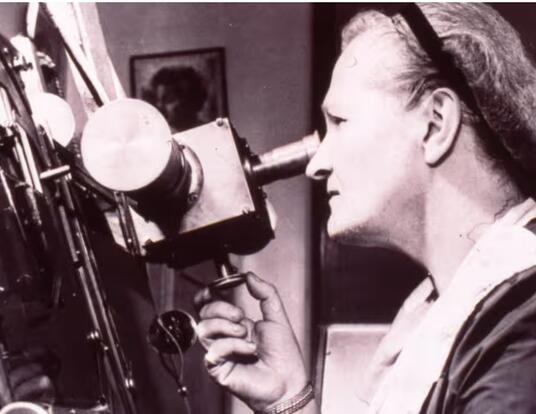Colloquy Podcast: Vets, Trauma, and the Search for Meaning
Research at Risk: Since World War II, universities have worked with the federal government to create an innovation ecosystem that has yielded life-changing progress. Now much of that work may be halted as funding is withdrawn. Find out more about the threats to medical, engineering, and scientific research, as well as how Harvard is fighting to preserve this work—and the University's core values.
May is Mental Health Awareness Month in the United States. It's also the month when we remember the sacrifices of the men and women who served in our country's armed forces. So this month, on Colloquy, a conversation about the hidden scar carried by our soldiers and many others: post-traumatic stress disorder.

Speaking with us is Ben Bellet, a PhD student in clinical psychology who studies PTSD. A graduate of the US Military Academy at West Point, Bellet served as an officer in the army for five years. During his deployments in Afghanistan and Kuwait, he found himself less and less interested in logistics and operations and more interested in the Dostoevskian question of human suffering, particularly among the soldiers he led.
Today, at Harvard, Bellet researches the ways that those living with PTSD can compulsively seek reminders of trauma. One of the gold standard treatments, exposure therapy, encourages survivors to approach reminders of the traumatic event. But Bellet's studies indicate that some survivors might expose themselves to these reminders in ways that confirm toxic beliefs about themselves. His data suggests that clinicians need to be flexible in their approach to treating the condition, always keeping in mind their patients need to find meaning in their distress.
NOTE: The research described in this conversation was funded in part by a grant from the National Science Foundation.
You graduated from the US Military Academy at West Point, and then you served in the army for five years. You were in Afghanistan and Kuwait. Is that where you first encountered traumatic stress?
So, my deployment to Kuwait, it was a pretty quiet deployment. There were never rounds cracking over my head or anything like that. But what really was eating soldiers' lunch on that deployment was what on Earth we were doing there, right? A lot of them had families that were falling apart stateside. And they're just sitting out in this obscure valley in the middle of nowhere, running patrols, wondering if there's going to be IEDs, wondering if their wives are cheating on them, right? And it created a crisis of meaning.
In a certain sense, the lack of any sort of contact with the enemy was a greater challenge to meaning than anything else. And I remember we had to pull guard at night on our Humvees behind a 50-caliber machine gun, and I remember relieving one of my soldiers of guard. Even the officers had to pull guard out there because we were out in the middle of nowhere. And I remember, he was really shaken up and really clearly very upset. And I thought, what happened, man?
And he just lets loose. He's like, “Sir, what the F are we doing here?” And he's shaking, just staring at me. And we sat down, and we had an honest conversation. I didn't feed him all the officer BS about, “Oh, we're here to liberate the people.” No, it was let's talk about the particular brand of despair you're dealing with right now. Let's have an honest conversation about that. And is there any source of meaning you can contact to get yourself through this for another day?
So I don't know if that provides a good illustration, but that's kind of what I'm talking about. A lot of these soldiers did have very tragic lives, too—I mean, as many of us do. But that was sort of the flavor of what it looked like on deployment for me, at least.
The word "trauma" has gotten so . . . I don't know if I want to say overused, but heavily used in our culture now, that it's hard to know what people actually mean when they say it. What does it mean for you?
The word "trauma" describes an effect on an experiencing subject. So there's no event that is inherently traumatic. Just as there's no bullet that is inherently traumatic to a body until it goes through a body, then it is traumatic, right? So the way that I like to think about trauma is it's any event that can create a major rift in your prior understanding of how the world worked, something that rocks your assumptions about the world, yourself, and other people.
Now, is trauma more prevalent, or why does trauma seem to encompass a wider swath of events? On the one hand, it might be that we've been missing true instances of events that can create major rifts in our understanding of the world.
The other possibility is that the world has been getting safer. A lot of Steven Pinker's work indicates that exemplary cases of trauma like rape and murder have been going down over time. It's possible that as canonical traumas decrease, less severe traumatic events can create these rifts in understanding. It's just that we're in a different culture. We're in a different context now. So that can be true. And there are still valid traumatic events. It's just that they're traumatizing by virtue of what our reference point for trauma is.
When I was preparing for our conversation today, I couldn't help but think of Jonathan Shay, who used to work at the VA hospital in Boston and who wrote the books back in the '90s, Achilles in Vietnam and Odysseus in America, about PTSD among Vietnam veterans. He talked about the centrality of moral injury in the experience of those men. It wasn't just that something stressful or something awful happened.
This goes to what you were saying about nothing is necessarily inherently stressful or traumatic, but it was that something wrong happened, that a commander abused their authority. They were ordered to do something that they thought was unethical. You were talking about the importance of meaning and the conversation that you had with this soldier. What's your take on the role of moral injury and traumatic stress?
So here's how I think about it. So a lot of the way I was taught about PTSD was through these sorts of animal models. So we learned about PTSD as a fear-base disorder. So if you take a rat and you give that rat an extreme shock while a light is flashing, it's going to react to subsequent lights flashing as if it's about to get an extreme shock, right? So we think about trauma as this overwhelmingly fear-inducing experience. And it creates so that any time you see a reminder of it later on, you flash back to the event, and it's as if you're re-experiencing it in real-time.
But we do know from other forms of traumatic stress, such as childhood sexual abuse, when you look at most childhood sexual abuse survivors, the dominant emotion they experience at the time of the trauma is not overwhelming fear. It's usually confusion. It's something like, well, “What’s Grandpa doing? I don’t really understand what’s going on.” Now, what happens with these folks is 20 years later, maybe they learned what childhood sexual abuse is. And all of a sudden, they have full-blown post-traumatic stress disorder, right?
That has not occurred necessarily because of an associative fear network in the brain. What's happened is their model of relationship, of trust, has been rocked. It's been profoundly violated. They cannot make sense of the world in the way that they used to because so many of the underlying assumptions have been violated.
So one way of reconciling this fear-based narrative of PTSD and the moral injury narrative is that in both cases, we're talking about a memory that stands out against the backdrop of other memories. And so there's this effort to make sense of what happened. That memory is preferentially retrieved because it represents a prediction error. It represents a rift in how we understand the world.
So I'm super interested in your research. I had never before—I read, I think, the abstract for your dissertation—heard of self-triggering behavior. So what is self-triggering, and how is it different, for instance, from retraumatization, if it is?
So, yeah, the definition of self-triggering that I was working with my dissertation is seeking out reminders of a traumatic event. So that could include media, people, or places, or situations. So seeking out experiences that remind you of a traumatic event on purpose. So that would be different from re-traumatization. Self-triggering could be one of the reasons someone is retraumatized, but retraumatization could also happen without any say-so on your part, right? It could be a completely involuntary situation that you're cast into.
One of the gold standard treatments for PTSD is exposure therapy, which encourages survivors to safely approach reminders of trauma. But you found in your research that people who self-trigger do not experience a reduction in symptoms.
Right, and that's the fascinating thing about self-triggering. And the sad thing about self-triggering is it seems that it's not working like exposure therapy for everyone, right? Many people anecdotally report, well, “I keep approaching these reminders of trauma. It's not helping me to be less scared of them. It's not resolving anything for me. I just feel more and more stuck and more and more compelled to keep self-triggering.”
And this is puzzling, right, based on exposure therapies, this idea of you have this fear structure in your brain, so a reminder of the traumatic event, physiological responses associated with the traumatic event, and thinking patterns associated with the traumatic event become very tightly linked. And so when you confront one of these reminders, that trips off the whole fear structure. And you're starting to feel and act like you're back in the trauma.
You would think, right, if you were to self-trigger, if you were to do these voluntary exposures, that eventually you would habituate. You would get used to the reminders [of trauma], and you would gain functioning. But that did not seem to be happening for most of the people we were talking to.
The idea with exposure is you confront reminders and you stay around that reminder long enough for your distress to reduce, and in a way, disprove the fear structure, to render it falsifiable, to see, OK, I can be around a reminder. And it doesn't mean that I have to respond in a trauma-related way. So you would think, right, if you were to self-trigger, if you were to do these voluntary exposures, that eventually you would habituate. You would get used to the reminders, and you would gain functioning. But that did not seem to be happening for most of the people we were talking to.
Can you give me an example of self-triggering behavior? Is it entirely conscious?
Yeah, that's a really good question. So some examples would be—and these are examples from folks who took our surveys—an example would be someone who survived rape and can't stop watching episodes of Law and Order SVU. Another example would be someone who suffered domestic violence and, for some reason, feels drawn to people who are similar to her initial abuser. Another example would be a soldier who goes into a high-risk profession like law enforcement because it reminds that veteran of combat.
So what does your research reveal about why they seek these reminders of trauma?
Yeah, and you mentioned to what extent is it conscious, right? So why are people doing this behavior in the first place? And to what extent is it conscious? I think those are two really good questions. So first, why do people say they're engaging in the behavior, right? So according to their own self-report, what we find is that there are many, many roads to this behavior. It's kind of like bats and birds both have wings, but they arrived at those evolutionary endpoints through much different paths. I think self-triggering comprises a class of cosmetically or superficially similar behaviors that people engage in for a host of different reasons.
The most prevalent reason that we've found in our initial survey was people self-triggering out of the desire to make meaning of trauma, to make sense of trauma, revisiting other similar narratives in hopes of understanding why it happened and what it means about them, what it means for them. But we also see other more immediate concerns, like I want to feel alive again. I feel numb all the time, and I want to feel something rather than nothing. And when I expose myself to these videos that remind me of my trauma, I immediately feel alive.
Other people do it in order to punish themselves. Other people talked about engaging in the behavior for sexual gratification. They had early formative experiences with sex that entailed abuse. And they find it hard to achieve sexual arousal without traumatic content. So there's a whole host of reasons. Incidentally, you also mentioned moral injury earlier. We had a couple of vets talking about how their behaviors, which would be called self-triggering, are their way of honoring the memory of fellow soldiers who had fallen.
So the idea of calling to mind their combat experiences with those soldiers, getting tattoos to memorialize those soldiers, that, for them, was a constant reminder of the trauma involved. But the ultimate end of that self-triggering was to honor a fallen comrade.
Now, part of the problem with all this—and you kind of touched on this already with this question about to what extent is the decision to self-trigger conscious—these are reasons that people are giving us in retrospect, right? And so it's quite possible that self-triggering subserves other functions for people that are not necessarily the same as the motives for which they're saying they're engaging in the behavior.
When you were initially talking about self-triggering behavior and that it was not having the impact that exposure therapy would expect it to have, the first thing that came to my mind was the scene from the movie The Fisher King that Terry Gilliam did back in the 1990s. Robin Williams. Jeff Bridges. There's a scene where the—I mean, Robin Williams is having delusions and he imagines that he sees this kind of hellish, flaming red knight.
Yeah, the red knight, yeah.
Yeah, on a horse. And there's one point where he has Jeff Bridges with him, and he goes running after the horse because he thinks he's got the knight on the run and he's going to get him. But it it ends up with him having this kind of paroxysm. So it made me think of feeling like you can somehow go back and fight that fight again or that the trauma is, in some way, telling you something about yourself, that you feel like you have to continually try to disprove. But in fact, the behavior of trying to disprove it ends up confirming the belief.
Right, right. Yeah, I think it's very well said, and it's a great analogy [and] that scene from that movie is a great example of that, right? And it raises this question that perhaps on an unconscious level, what do we really want as humans? Do we want happiness, or do we want predictability? And do we want to build predictive models of the world that are reliable? Right? So in these patterns of self-triggering, it may be that confronting narratives that have a different ending might actually be much more difficult than confronting narratives that reconfirm one's maladaptive narratives about trauma. Yeah.
Sometimes it sounds as though the preferred way of dealing with maladaptive behavior or beliefs is to change the behavior or change the beliefs, right? But then you bring up this piece about this need to somehow find meaning in the trauma that's happened to us. And certainly, when I think about Jonathan Shay's books, he draws on these 2,000-plus-year-old epic poems that can help him understand and put some kind of almost timeless frame of meaning around the experience that these soldiers are having. So how do you integrate some of the practical behaviors that can help people deal with difficult feelings in the moment versus this more long-term need that people seem to have to bring some sort of meaning to the suffering they've experienced?
I think that those two processes are actually inextricably linked, right? So how we navigate moments of emotional turmoil in the present moment draws on scripts about past trauma. And conversely, how we deal with those daily situations can also change our retrospective understanding of what trauma meant or what the meaning of suffering in general is. I think those are embodied action and meaning in the higher intellectual or narrative sense are inextricably intertwined.
I'll give an example. We published a case study fairly recently on a Vietnam War veteran who was being treated at the VA. And this veteran had witnessed the death of a civilian child who was killed by a flare in Vietnam—or the likely death of the child. He actually wasn't sure if the child had died or not. That was a big part of what tortured him. And he engaged in self-triggering instead of—he also had other combat-related trauma, too.
So his maladaptive belief was that the world is completely dangerous, and you never know what's around the corner. And terrible things can happen to good people at any time. So what he did was he did not leave his home pretty much at all for a period of, I think, about a decade. And he stayed in his house, and he watched YouTube videos of random violence erupting in public places.
And so, this self-triggering was just reconfirming over and over and over again his understanding of how dangerous and how unpredictable the world was. So there you see a behavior, a habit that's interacting with a core belief. Well, the therapist who treated this veteran—I was just a consultant on the case. She was the one actually treating the vet—was absolutely brilliant. She didn't try to argue with him about whether or not the world was dangerous.
What she did was she got the veteran's wife involved. And she encouraged them to go on these little outings, out in the world to test this hypothesis, right? OK, let's render this hypothesis that the world is dangerous falsifiable. Go out and try to do a grocery run with your spouse.
And over time, as he was able to gain agency in the world and realize it wasn't completely dangerous, that core belief changed. A similar approach was taken with his need to honor the innocent boy who had likely been killed, finding more constructive ways to memorialize the life of that boy, rather than sitting at home and punishing himself.
Approach or avoidance behaviors can both be pathological insofar as they reinforce a fear structure, insofar as they reinforce those maladaptive beliefs that trauma brought about.
So this has been a really rich conversation, and I just wonder, from the research you've been doing on traumatic stress and self-triggering behavior, what are your hopes about how it could have an impact on the way the clinicians understand and treat PTSD, and for that matter, how we, as a kind of larger society, understand it?
I have a broader message that I hope the work gets across and then a more clinically specific message. So the broader message is this idea of humans, and in particular, humans with mental disorders, not as just pain avoiders or pleasure maximizers. We're also people who are in search of meaning. We want coherence. We want to make sense out of what's happened to us. And we will, at times, put ourselves through incredibly painful things in order to achieve that end. So that's sort of the broad brush message.
On a more clinically specific level, currently, in the Diagnostic and Statistical Manual of Mental Disorders, Edition 5 Revised, which we're at now, avoidance behaviors are part of the PTSD diagnosis. You have to exhibit avoidance behaviors in order to have a diagnosis. I think that maybe what could be considered is it's possible to have pathological approach behaviors, too.
What's key is the meaning of the behavior, right? Approach or avoidance behaviors can both be pathological insofar as they reinforce a fear structure, insofar as they reinforce those maladaptive beliefs that trauma brought about. And so I hope it can help us to just think more flexibly as clinicians about how we treat trauma survivors going forward.
Get the Latest Updates
Join Our Newsletter
Subscribe to Colloquy Podcast
Simplecast





